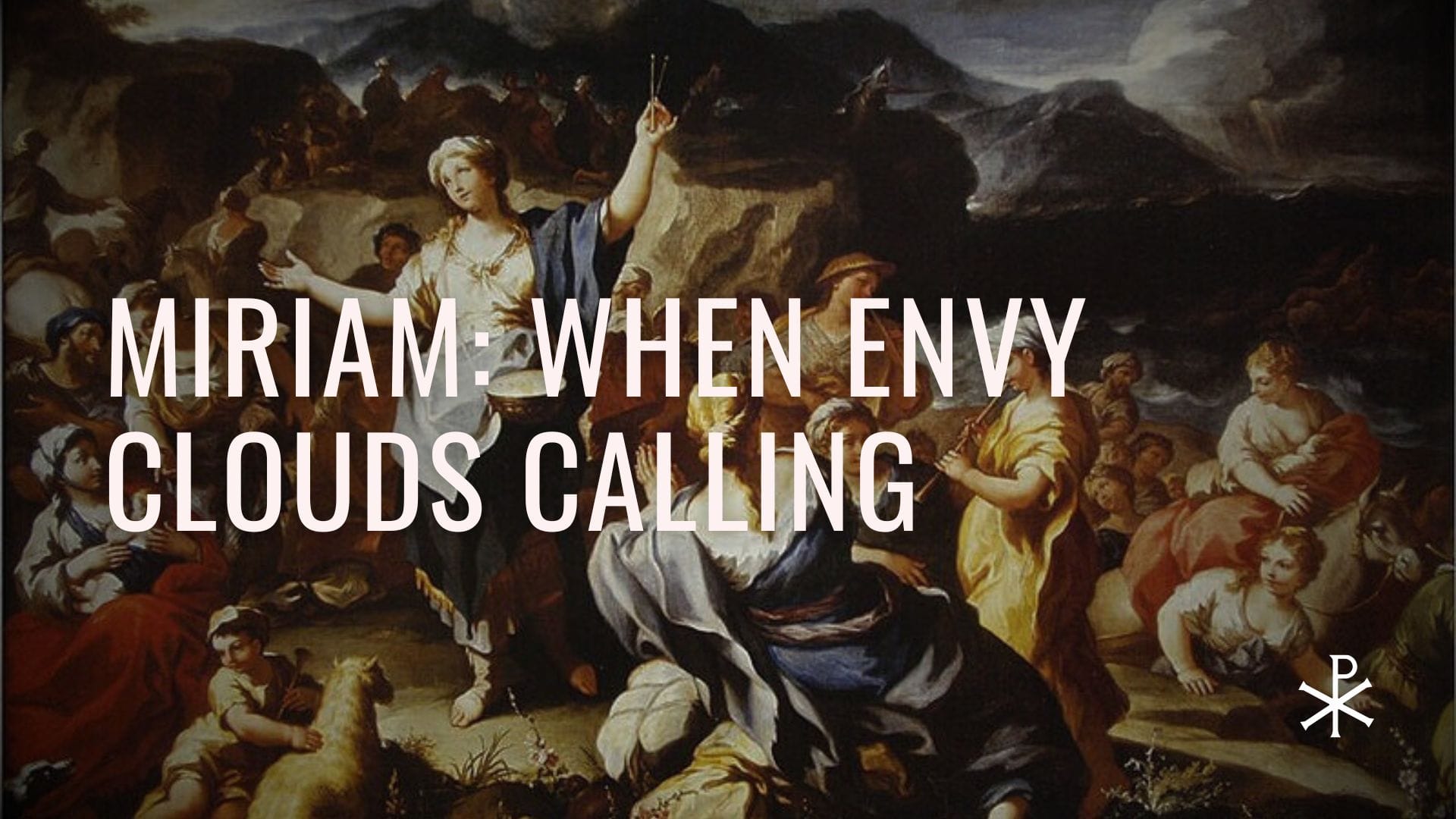Redeemed Failures, Day 29: Miriam – When Envy Clouds Calling
Miriam’s story shows how envy and comparison can cloud even faithful service, yet God’s discipline and mercy restore His servants to joy and usefulness.

Exodus 15:20–21; Numbers 12:1–15
Miriam first enters the story of redemption as the protective sister, standing by the Nile when Pharaoh’s daughter drew Moses from the water (Exod. 2:4–8). Years later, she reappears in Israel’s history as a prophetess, tambourine in hand, leading the women in song after Pharaoh’s army was swallowed by the sea: “Sing to the Lord, for he has triumphed gloriously; the horse and his rider he has thrown into the sea” (Exod. 15:21). In that moment, Miriam was the embodiment of joy: her voice echoing Israel’s deliverance, her leadership empowering God's people to worship.
The Sting of Envy
But even those most used by God are not immune to sin. In Numbers 12, Miriam and Aaron challenged Moses, beginning with a complaint about his marriage to a Cushite woman (v. 1). The region of Cush lay south of Egypt, encompassing modern-day Sudan and Ethiopia. Their criticism carried an edge of ethnic prejudice, a sharp departure from the jubilant inclusivity of Miriam’s earlier song.
Yet the marriage grievance was only the surface. The deeper issue emerges in their next words: “Has the Lord indeed spoken only through Moses? Has he not spoken through us also?” (v. 2). What looked like a concern for propriety was, in reality, envy disguised. Miriam, once content to celebrate God’s victory, now resented her brother’s unique role. Comparison clouded her calling, and jealousy turned her heart against the very order God Himself had established.
God's Discipline
The Lord’s response was immediate and unambiguous. He summoned the three siblings to the tent of meeting and declared the distinction between Moses and every other prophet. Others received visions and dreams; Moses alone spoke with God “mouth to mouth, clearly, and not in riddles” (v. 8). Notably, God completely ignored their criticism of Moses’ marriage, a silent rebuke to their prejudice.
When the cloud lifted, Miriam’s skin was leprous, “white as snow” (v. 10). The irony could not be missed: the woman who had spoken against Moses’ dark-skinned wife now bore the visible mark of judgment in her own flesh. The leader who once stood at the front of Israel’s women was driven outside the camp, her envy and pride exposed for all to see.
The Pathway to Restoration
But judgment was not the end. Aaron pleaded for his sister, and Moses—the very one she had opposed—interceded with remarkable grace: “O God, please heal her—please” (v. 13). The Lord heard, and though Miriam spent seven days in shame outside the camp, she was restored. Significantly, the entire nation waited for her return (v. 15). Discipline was real, but so was mercy; Israel’s journey would not continue without her.
Living Beyond Comparison
Miriam’s story warns us of the subtle power of envy. It is easy to disguise our jealousy as righteous concern, to criticize others in order to elevate ourselves. But in doing so we oppose God’s sovereignty in distributing His gifts. The temptation to measure our worth by prominence rather than faithfulness remains as present in the church today as it was in Israel’s wilderness.
Yet her story also offers hope. God disciplines not to discard but to restore. Miriam’s leprosy was temporary; her restoration was lasting. The same Lord who exposed her envy healed her body and returned her to her people.
An Encouragement
For those who feel overlooked or sidelined, Miriam’s experience is both sobering and comforting. God does not evaluate His servants by their visibility but by their fidelity. And when envy clouds our service, repentance opens the way for renewal. The Lord who restored Miriam can still transform envy into contentment, comparison into joy, and discipline into deeper dependence on His wise and gracious call.
Enjoy all 31 devotionals in the Redeemed Failures series here —stories of grace, second chances, and the God who still restores.
